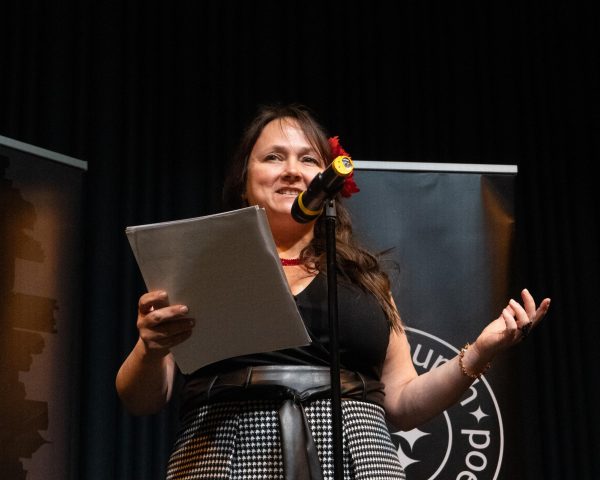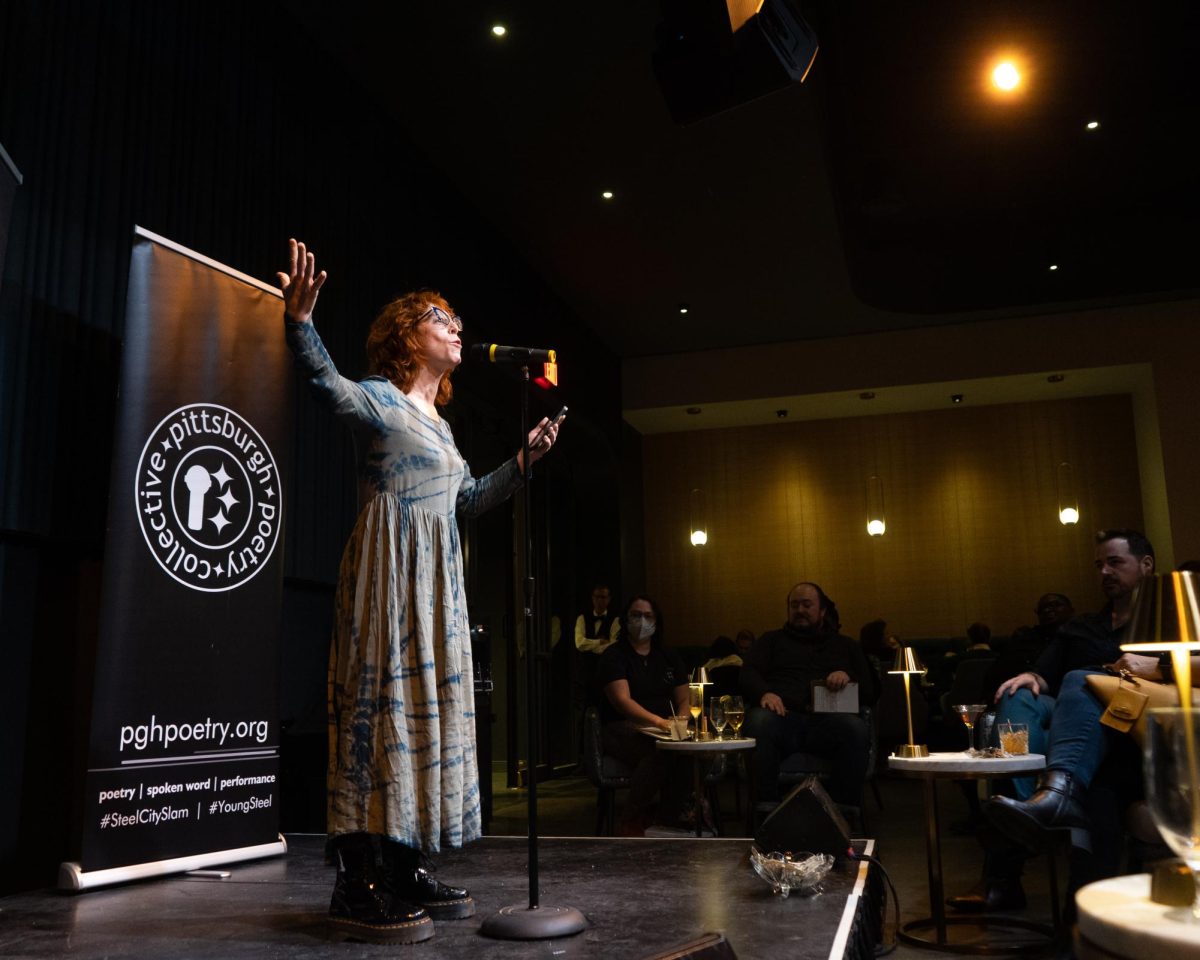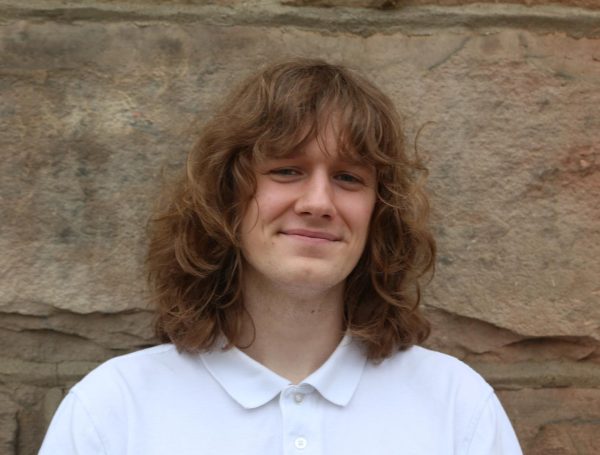Nearly 100 attendees hid from the rain and enjoyed refreshments while listening to a lineup of local slam poets on Wednesday night in the lounge of the Greer Cabaret Theater in downtown Pittsburgh. The poetry slam, hosted by the Pittsburgh Poetry Collective, showcased nine competing slam poets, four featured poets and a brief open mic session.
Lori Beth Jones, emcee of the poetry slam, took the stage to entertain, excite and at times flirt with the audience through the three-hour event. The slam spanned three rounds, and at the end of each one Jones announced the three lowest-scoring poets — as determined by five random judges scattered throughout the audience — that would be eliminated.
Poets signed up for the competition on a first-come, first-served basis, not limited by age, experience or poetic background. Some were veterans of the art. Others, like Noelle Asiyanbi, a first-year funeral service major at Point Park University, were only beginning to make a name for themselves.
Asiyanbi developed an interest in poetry during their time on their high school speech team and found solace in poetry — as many do — during a difficult time in their life.
“I got really sick one year and didn’t really have anything to do about it,” Asiyanbi said. “So I just wrote about it, and now I’m still doing it.”
The nine slam poets touched on a wide breadth of topics, ranging from the aging process to the conflict in Gaza. Asiyanbi opened with a meta-poem discussing the temporality of poetry, using the idea of erasing a poem from existence as an image for the power people find in destruction. Joaquin Gardner-Gotera, a junior chemistry major at Pitt, leaned more into raw imagery of sex and romance in his poem “Blood and Guts.”
Gardner-Gotera has participated in monthly slam poetry events for the past two years and said his affinity for the art lies in the performance and the audience, which allow him to express himself in more nontraditional forms.
“When I was younger, I was very much into theater and performing in plays,” Gardner-Gotera said. “This is just a chance to have my voice be heard and be understood in a way that isn’t quite possible in literal language.”
Gardner-Gotera believes spoken word offers more depth to a poem than written works, as the performance aspect adds a key element of personality that draws the audience into a more intimate understanding of the poem.
“As much as I love reading a poem on a page, there’s a certain amount of energy — a certain amount of life — that it is given coming from a person’s mouth,” Gardner-Gotera said. “The way they pronounce certain words or the way the inflection changes on certain lines, it’s really impactful for me.”

Between each round, as the audience grew closer to learning the winner of the poetry slam, one of the four featured poets of the night would share a few of their own poems, easing the growing anticipation. The personal styles of each featured poet varied widely, giving the lounge a crash course in poetry.
Maiya Bennett, the second featured poet and creative director of the “Ode to Women” Project, spoke on love, gender and religion. She grounded part of her performance in the popular “Anne with an E” line, “How I love being a woman!” The poem used anaphora of the phrase “How I love” to examine the beauties and hardships of womanhood.
Bennett said she prefers slam poetry to written pieces for the agency it gives the poet over their own work.
“I’m trying to get better at the written stuff, but when I can pause for comedic effect, I think it’s just so fun,” Bennett said. “You add a comma, or a pause, or a breath or you build it up, and then it lands in a certain way.”
Cheney, the third featured poet of the night, spoke before the final showdown of the three remaining slam poets. Cheney said she draws inspiration from poet and activist Andrea Gibson, specifically in their ability to pull their reader’s emotions back and forth.
“They take you on a roller coaster of emotions,” Cheney said. “You’re crying about something and then they say something that just makes you laugh so hard, and then right back into crying.”
Cheney channeled Gibson’s emotional whiplash in her readings, which opened with an exploration of suicide, repeating the word “beauty” as the thumping of a heartbeat, and closed with a series of raunchy pickup lines for mountaineers.
Leaving the crowd on a lighthearted note, Cheney gave up the stage for the final three slam poets to perform their final stanzas. As Jones tallied up the final scores, the winner of both the 2022 and 2023 Grand Slams, Shockie G, shared her work as the final featured poet of the night.
The evening concluded when Torli Bush, whose poems focused largely on racial identity and the culture of Appalachia, won the $100 cash prize for the poetry slam. Jones invited all the competing poets up onto the stage for a group photo before bidding the audience a final goodbye.
The Pittsburgh Poetry Collective gave its audience a reprieve from the stresses of daily life to enjoy a night of art, performed by ordinary, yet exceptional, residents of their city. Many listeners stayed back to let the pain, beauty and hilarity of the night sink in before they reemerged onto Pittsburgh’s rainy streets.



